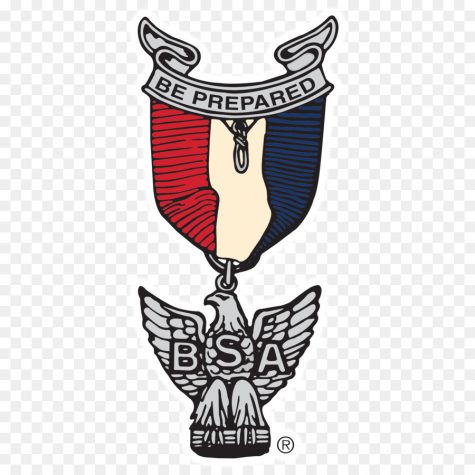The Flight to becoming an Eagle Scout
November 25, 2019
Scouting was founded by Robert Baden-Powell in London and was brought to America in 1911. Immediately, it started spreading across America and increased in popularity significantly. During its prime, there were 4 million boy scouts in 2000 but has unfortunately decreased to 2.3 million based on statistics from 2016. Out of all these scouts, only a fraction are able to make the honor of Eagle Scout, the highest honor in scouting. Specifically, only 4% of all scouts make it. In 2018 alone, there were only 52,000 recipients of this honor.

What does it take to become an Eagle Scout? The first requirement is completing the 13 Eagle-required merit badges. Merit badges are awarded by activities based on the area of the study of the merit badge. The 13 required merit badges are Camping, Citizenship in the Community, Citizenship in the Nation, Citizenship in the World, Communications, Cooking, Emergency Preparedness or Lifesaving, Environmental Science or Sustainability, Family Life, First Aid, Personal Fitness, Personal Management, Swimming, Hiking or Cycling. On top of the 13 required, a scout would need to complete another 8 total merit badges to be eligible to receive the Eagle Scout honor. These badges could range between kayaking to basketry and many more.
On top of having the minimum 21 merit badges, a scout must complete a service project, a project that would benefit the community, and must add up to at least 100 hours of work done. These projects could be just about anything, as long as it can be approved by the Eagle Scout board. Some examples have been building footbridges for trails, building extensions or upgrades for public buildings, installing water bubblers in public parks, etc. “The hardest part… was dealing with all of the intricacies of leading a project in real life with no guidelines” says Matthew Miller, an Essex-Tech student. Another difficulty is that the Eagle project has to be funded entirely through donations from the community. It is expected that everything built for the project has been given or funded by local companies and businesses, and none should be taken out of the scout’s personal funds.

The last challenge of the project is the deadline. As soon as you turn 18, you are ineligible to become an Eagle Scout, regardless of the progress you have already made. Luc-Daniel Metivier would agree as the hardest thing for him was “Actually staying on top of the project timing, organizing everything.” In order to help with this, the troop is there to help with any volunteer work needed. This also teaches many leadership qualities. “It helped my communication and organizational skills,” says Metivier. Since Eagle Scout is the highest rank, you have to make it through the prior 6 ranks of scouts to even try to become an Eagle Scout, which can be years of a process. The rewards of this are incomparable to anything else. After all of the hard work and years that go into this achievement, you learn a lot about yourself.
Miller says it best: “Scouting has totally shaped who I am and who I’ve become friends with and how I live my daily life. It’s difficult to separate what I’ve gained from scouting from my personality as a whole because it has contributed so much to who I am. I always aim to help others and work hard, as well as taking on responsibilities that other people may wish to stay away from. It has helped me to always do my best and to be myself.”
Along with being morally rewarding, becoming an Eagle Scout will help the world see you as a leader and present new opportunities for those determined few. “It got me scholarships, jobs, people respect you more, and benefits my expected career path,” says Metivier who is currently working towards becoming a park ranger at the University of Maine to follow his passion for leadership and the outdoors.
